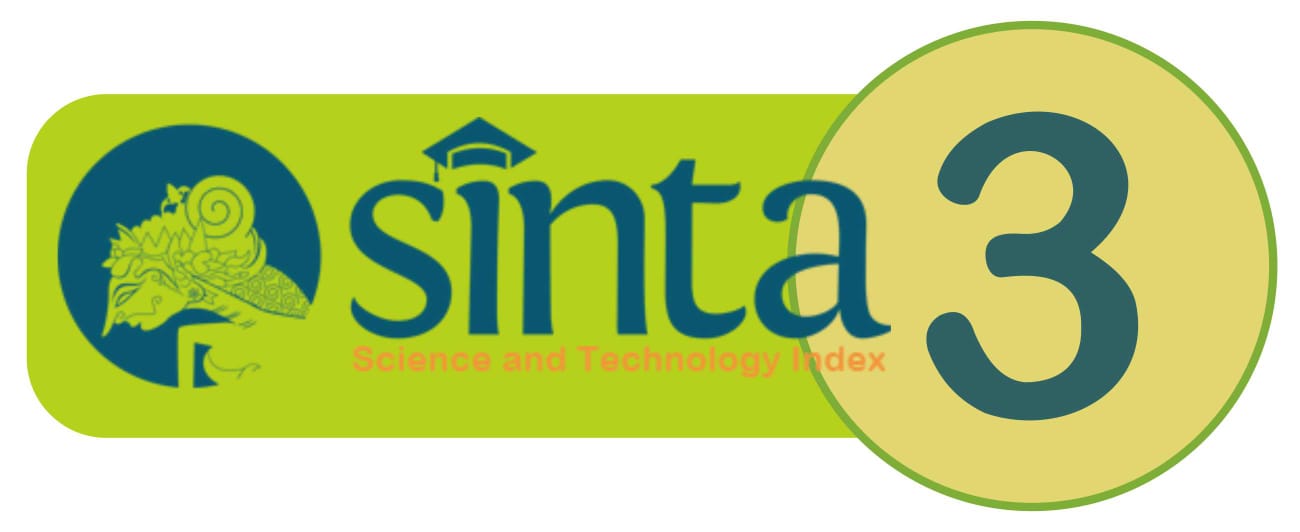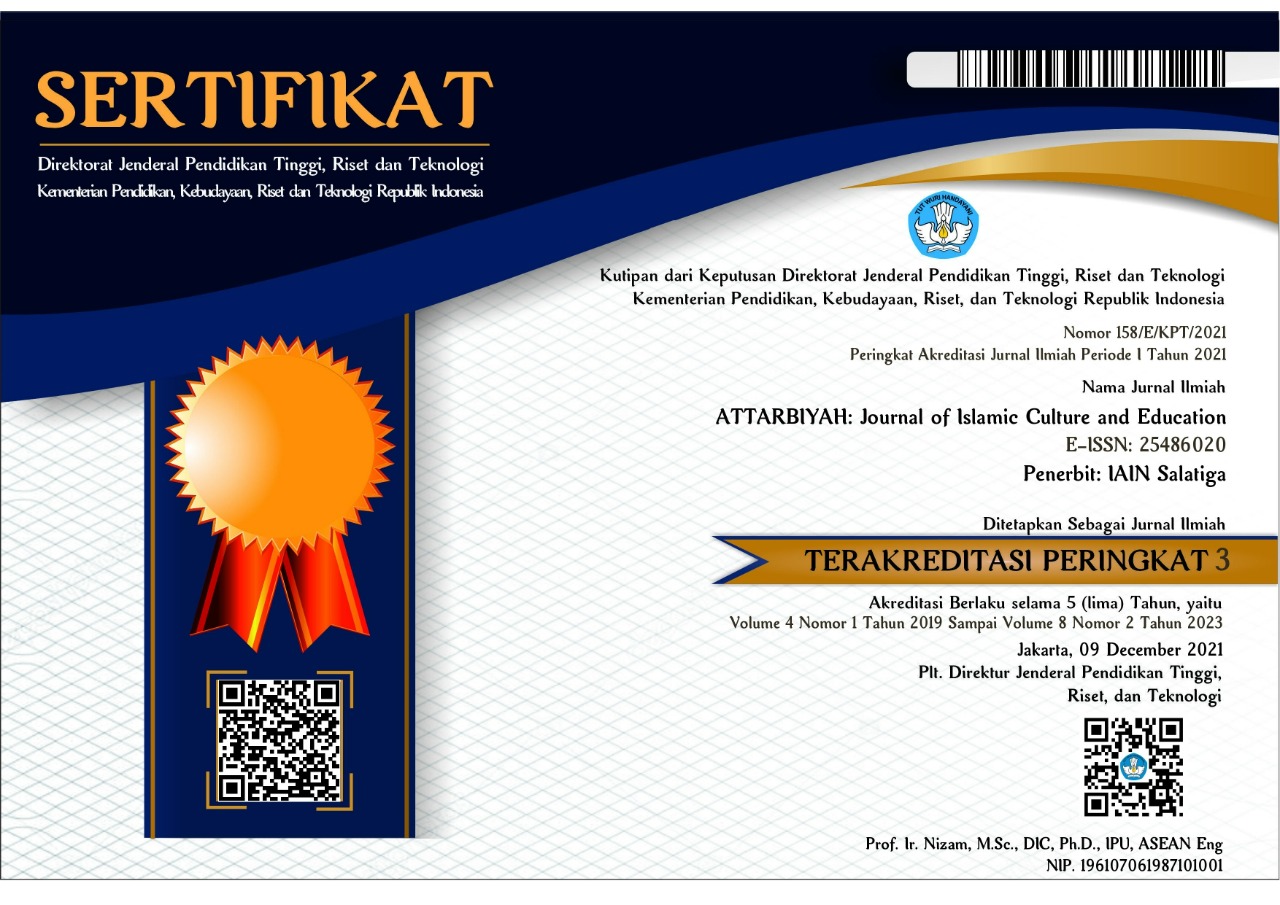Indonesian national qualification framework & MBKM curriculum of PAI doctoral in UIN Sunan Kalijaga
Abstract
The curriculum is so important in Higher university. The existence of compulsory higher education and transformed into an independent agency without interest and political elements stored in it. This Study aims to describe the Indonesian National Qualification Framework and MBKM Curriculum of PAI Doctoral in PTKI. This research's findings are as follows the reality is that the recruitment pattern of educational institutions cannot be separated from the grip of politics. For example, many top leaders in higher education are still wrong the mention KKNI, the error lies in how to understand the concept of KKNI only to the extent of the curriculum. With the implementation of the curriculum, it is hoped that PTKI will meet the needs of employment opportunities and can play an important and active role in social life at the national and international levels. In addition, all PTKI graduates can obtain equality in terms of rights and recognition related to further education in all countries that have the same qualifications that have been determined by all graduate users
Keywords
Full Text:
PDFReferences
Buku Panduan Merdeka Belajar Kampus Merdeka, (2020). (Jakarta: Direktorat Jenderal Pendidikan Tinggi Kementerian Pendidikan dan Kebudayaan).
Lalima & K.L. Dangwal. (2017). Blended Learning: An Innovative Approach, Universal Journal of Education Research, 5 (1).
Erihadiana, M. (2019). Implementation Of Curriculum Based on Indonesian National Qualification Framework In Islamic Religious College (Case Study Problems and Challenges Implementation of Curriculum Based on the Indonesian National Qualifications Framework at the State Islamic University of Sunan Gunung Djati
Bandung), Conference Proceeding ICONIMAD International Conference on Islam in Malay World IX, Krabi, Thailand.
Freire, P. (2007), Politik, Kekuasaan, dan Pembebasan. Terj. Agung Prihantoro dan Fuad Arif Fudiyartanto, (Cet. VI; Yogyakarta: Pustaka Pelajar).
Hayani, A. (2021). Artifical Intelligence Librarian as Promotion of IAIN Lhokseumawe Library in the Revolutionary Era, 4.0, Journal of Robotics and Control (JRC), 2 (2), 88.
Helaluddin. (2018). Redesain Kurikulum Pendidikan Tinggi: Strategi Dalam Menyongsong Era Revolusi Industri 4.0, Jurnal Mudarrisuna, 3 (2), 2.
Irsad, M. (2016). Pengembangan Kurikulum Pendidikan Agama Islam di Madrasah (Studi Atas Pemikiran Muhaimin). Jurnal Iqra: Kajian Ilmu Pendidikan. 2 (1).
Kementerian Agama. (2016). Panduan*Pengembangan*Kurikulum PTKI Mengacu pada KKNI dan SN-Dikti, (Jakarta: Direktorat Pendidikan Tinggi Keagamaan Islam).
Makki, I. (2016). Dinamika Perkembangan Kurikulum Pendidikan Agama Islam Di Perguruan Tinggi, Journal Studi Islam 3(2).
Medina, L.C. (2018). Blended Learning: Deficits and Prospects in Higher Education, (Australasian Journal of Educational Technology, 34(1).
Mozelius, P. & E. Hettiarachchi. (2017). Critical Factors for Implementing Blended Learning in Higher Education, ICTE Journal 6 (1).
Neliwati, D. Marbun, & Mahariah (2019). The Implementation of Curriculum Based Indonesian National Qualification Framework (KKNI) in Islamic Education Study Program at The Islamic Higher Education in Medan,” IJLRES - International Journal on Language, Research and Education Studie, 3(1).
Nuryanto, A. (2017). Kritik Budaya Akademik Di Perguruan Tinggi, The Journal of Society & Media, 1 (1).
Peraturan Presiden No 8 tahun 2012.
Supriati & T. Handayani. (2018), Relevansi Lulusan Perguruan Tinggi Dalam Penempatan Kerja,” Journal of Applied Business Administration, 2(2).
Sutrisno &*Suyadi. (2015). Desain Kurikulum Perguruan Tinggi Mengacu Kerangka Kualifikasi Nasional Indonesia. Bandung: Remaja* Rosdakarya.
Suwadi. (2016). Pengembangan Kurikulum PAI Pada Pendidikan Tinggi, Jurnal Pendidikan Agama Islam, XIII (2), 15.
Wahyuningrum. (2017). Evaluation of Indonesian National Qualification Framework-Based Learning Process in Faculty of Education Universitas Negeri Yogyakarta. International Conference on Education Management/Administration and Pedagogy.
DOI: https://doi.org/10.18326/attarbiyah.v7i1.13-29
Refbacks
- There are currently no refbacks.

ATTARBIYAH: Journal of Islamic Culture and Education by http://attarbiyah.iainsalatiga.ac.id/ is licensed under a Creative Commons Attribution-ShareAlike 4.0 International License
----------------------------------------------------------
ATTARBIYAH : Journal of Islamic Culture and Education IAIN SALATIGA p-ISSN: 0215-9996, e-ISSN: 2548-6020




